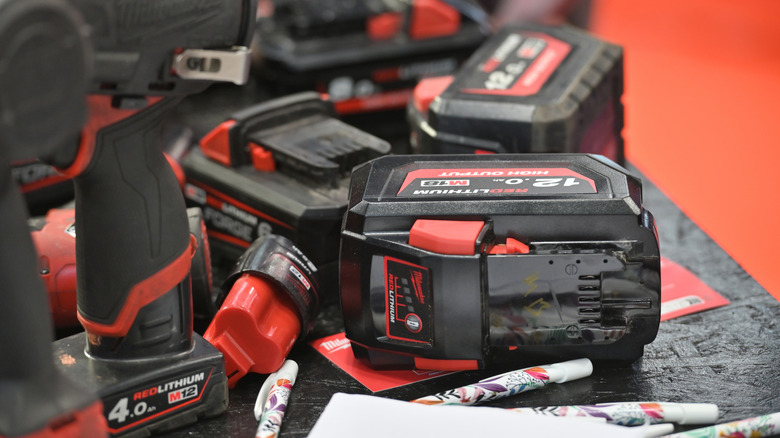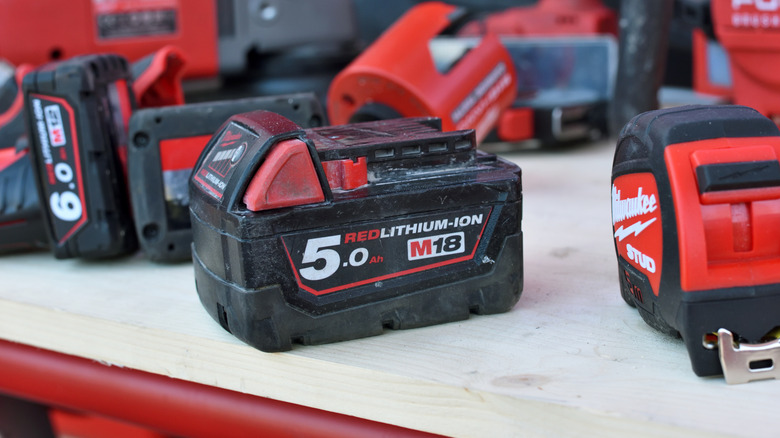Is It Safe To Leave Your Milwaukee Batteries Charging Overnight?
Leaving your Milwaukee batteries on the charger overnight is something a lot of people do without a second thought. But when it comes to keeping your tools ready and your batteries healthy, it's worth asking if this habit is actually a good idea.
According to Milwaukee's official manual for their M12-18C charger, the unit is designed to keep the battery fully charged if it's left on the charger, and won't overcharge once the battery is full. That means leaving a battery on overnight is safe from a functionality standpoint. However, some general safety tips, including those in the same manual, and from Milwaukee itself, recommend unplugging the charger when not in use. While this is more about preventing electrical hazards than damaging the battery, unplugging after a full charge can also help preserve long-term battery health.
Whether or not you leave your Milwaukee battery on the charger, be sure to always use it in a well-ventilated area and keep the charger vents clear to prevent overheating. Keeping the battery cool, as well as dry, will ensure they charge both safely and effectively.
Milwaukee batteries require smart handling and storage for top performance
Whether you're using Milwaukee dual or single battery tools, the company's lithium-ion batteries are designed specifically for use with their equipment. Using them with incompatible tools can damage the batteries and create safety risks such as electrical shocks or fires. To keep your tools running safely and effectively, you should never modify the battery and always stick to the recommended chargers, as there are risks to using third-party chargers.
Handling your batteries with care is just as important as using the right equipment. Physical damage like drops, punctures, or crushing can cause serious internal problems or even expose dangerous chemicals. If you notice any cracks, leaks, or other damage, stop using the battery immediately and take it to an authorized Milwaukee service center. Opening or tampering with the battery yourself is unsafe and could lead to electric shock or chemical burns.
Proper storage is another key part of keeping your batteries safe and functioning well. Keep them in cool, dry locations and away from metal objects or corrosive liquids to prevent short circuits or damage. Taking these precautions helps protect your investment and ensures your tools are ready to go when you need them.

